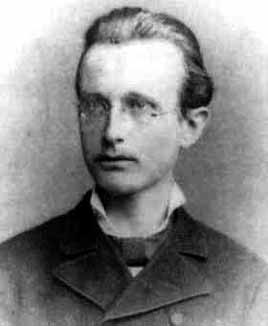
Max Planck
|
|
|
|
|
|
|
|
|
|
|
|
|
|
|
|
|
|
Max Planck (1858-1947)
 |
Max Planck |
So, who was Max Planck?
Born in Kiel, Germany, on 23 April, 1858, Max Karl Ernst Ludwig Planck, was the sixth child of a professor of law at the University of Kiel. He was in touch with academics from birth, as his grandfather and great grandfather had also been professors, at Gottingen.
Where did he go to school?
Max's father took up a position at the University of Munich in 1867 and due to this move, Max Planck went to school at the Maximilian Gymnasium, where, as a result of lessons given by his teacher, Hermann Muller he seems to have developed a strong interest in maths and physics. It appears that Planck was a very good pupil academically, regularly appearing in the top ten in class lists, whatever the subject he was studying. He could have become a classical scholar or a musician, but decided that physics was for him.
What did he do on leaving school?
In 1874, aged 17, Max Planck began his physics studies at Munich University. He did not get on very well with his professor, Philipp von Jolly, and so moved on to the University of Berlin in 1877, where his teachers included Helmholtz and Kirchoff. He independently studied Clausius' work on thermodynamics, which resulted in his returning to Munich to receive his doctoral degree in 1879 for a thesis on the second law of thermodynamics. He was aged only 21, a remarkable achievement, and one which proved to von Jolly that he had been wrong when he had told Planck that there was little or nothing to discover in physics.
What did Max Planck do next?
After presenting his dissertation, Max was appointed to a lectureship, in 1880 at the University of Munich. He remained there until 1885.
In that year, he accepted a post as associate professor at the University of Kiel. He remained there for four years.
Planck's next promotion was to the professorial chair of theoretical physics at the University of Berlin. He remained there for some 38 years until his retirement in 1927.
During that period, Planck supervised doctoral students, gave lectures and continued his own research, which was concerned with thermodynamics, mainly with respect to energy distribution according to wavelength.
Planck had encountered formulae produced by Wien and Rayleigh and was able to use these to produce his own formula. In 1900, he was able to describe the distribution of intensity with regard to wavelength of a "black body" (defined by Kirchoff in 1859-60, as an object that emits and absorbs radiation perfectly). In explaining how his formula worked, Planck asserted that the energy is radiated in discrete units called "quanta". In further refinement of his formula, he found a fundamental constant of nature, which is known as Planck's Constant.
This says:
E = hf
or since
f = c/l
E = hc/l
[h = Planck's constant, l = wavelength, c = velocity of light, E = energy]
Thus Quantum Theory had begun.
What of Max Planck's personal life?
Max Planck's personal life was not easy. He married Marie Merck in 1887 but she died in 1909, leaving Max with two sons and two daughters to bring up.
In 1910, he married Marga von Hoesslin, by whom he had a son.
His eldest son, Karl was killed in battle in 1916.
In 1917, one daughter, Margarete died in childbirth.
In 1919, his other daughter, Emma, also died in childbirth.
In 1944, bombs completely destroyed his house in Berlin.
In 1945, his son Erwin, who had been implicated in the plot on Hitler's life in 1944, was tortured to death by the Gestapo.
Max Planck was totally devastated by this final tragedy and eventually died at Gottingen on 4th October 1947.